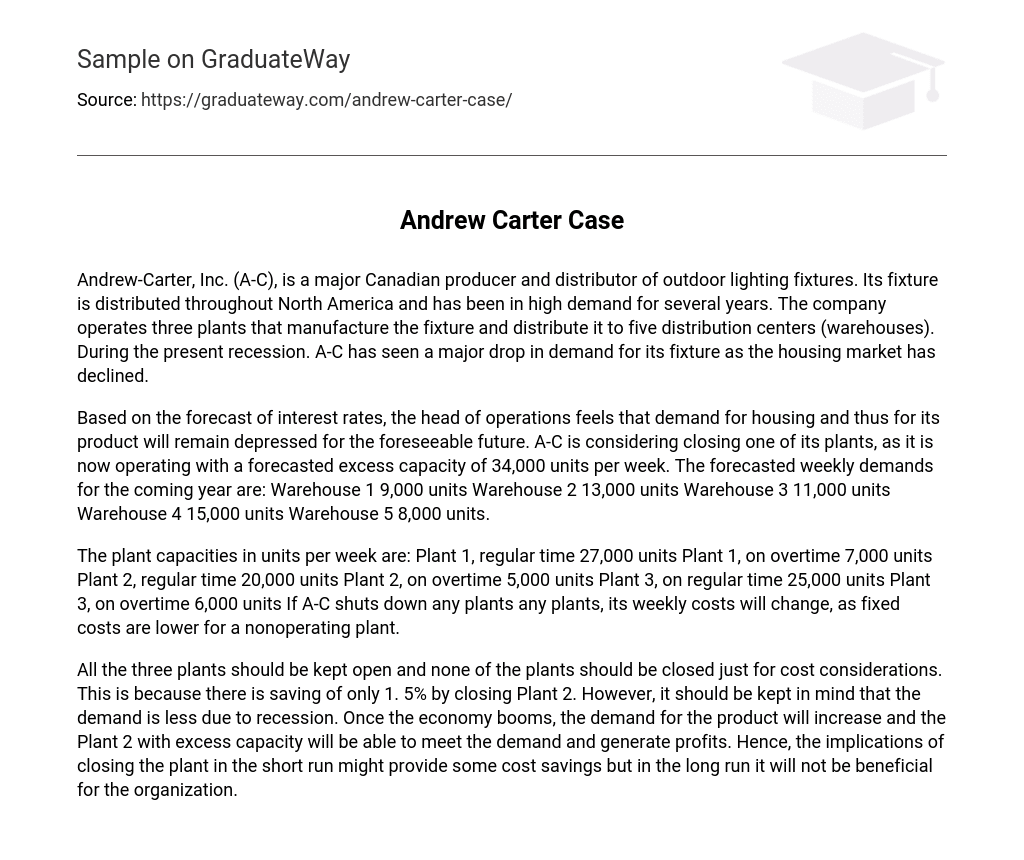Andrew-Carter, Inc. (A-C), is a major Canadian producer and distributor of outdoor lighting fixtures. Its fixture is distributed throughout North America and has been in high demand for several years. The company operates three plants that manufacture the fixture and distribute it to five distribution centers (warehouses). During the present recession. A-C has seen a major drop in demand for its fixture as the housing market has declined.
Based on the forecast of interest rates, the head of operations feels that demand for housing and thus for its product will remain depressed for the foreseeable future. A-C is considering closing one of its plants, as it is now operating with a forecasted excess capacity of 34,000 units per week. The forecasted weekly demands for the coming year are: Warehouse 1 9,000 units Warehouse 2 13,000 units Warehouse 3 11,000 units Warehouse 4 15,000 units Warehouse 5 8,000 units.
The plant capacities in units per week are: Plant 1, regular time 27,000 units Plant 1, on overtime 7,000 units Plant 2, regular time 20,000 units Plant 2, on overtime 5,000 units Plant 3, on regular time 25,000 units Plant 3, on overtime 6,000 units If A-C shuts down any plants any plants, its weekly costs will change, as fixed costs are lower for a nonoperating plant.
All the three plants should be kept open and none of the plants should be closed just for cost considerations. This is because there is saving of only 1. 5% by closing Plant 2. However, it should be kept in mind that the demand is less due to recession. Once the economy booms, the demand for the product will increase and the Plant 2 with excess capacity will be able to meet the demand and generate profits. Hence, the implications of closing the plant in the short run might provide some cost savings but in the long run it will not be beneficial for the organization.





